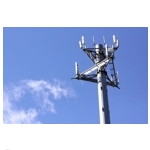 The FCC could soon formalize plans to auction TV broadcast spectrum to mobile broadband providers and share the proceeds with broadcasters.On Friday FCC Chairman Julius Genachowski circulated a proposal for the auctions within the FCC and the item was put on the agenda for a monthly commission meeting scheduled for Sept. 28.
The FCC could soon formalize plans to auction TV broadcast spectrum to mobile broadband providers and share the proceeds with broadcasters.On Friday FCC Chairman Julius Genachowski circulated a proposal for the auctions within the FCC and the item was put on the agenda for a monthly commission meeting scheduled for Sept. 28.
Since TV broadcasters transitioned to digital broadcasting in 2009, some of them have spectrum they are not using. The idea of allowing broadcasters to voluntarily relinquish some of their spectrum and share in the proceeds of an incentive auction has been discussed for several years. In a statement issued Friday, Genachowski did not specifically state that relinquishing spectrum would be a voluntary decision on the part of the broadcasters, but that is the approach specified in legislation passed earlier this year that gave the commission the authority to conduct the auction.
“We have no quarrel with television stations to choosing to voluntarily participate in the auction process,” said Dennis Wharton, vice president of communications for the National Association of Broadcasters, in a statement. “Our overriding objective remains the preservation of a vibrant future for free and local TV stations that serve tens of millions of Americans every day with quality entertainment, local news, the most popular sports and life-saving weather warnings.”
Although Genachowski’s statement offered few details about what is in the proposal, he did make a point of noting that “The proposal would . . . free up a significant amount of unlicensed spectrum for innovative WiFi-like uses, and create the first uniform, national low-band unlicensed spectrum in any country.”
Wireless Internet service providers (WISPs) will be encouraged by that statement, as they already are undertaking deployments of fixed broadband wireless in vacant television spectrum on an unlicensed basis, primarily in rural areas that lack other broadband options.
Two wireless industry associations issued statements applauding the FCC’s incentive auction plans.
“As CTIA has consistently stated, the economic impact of bringing additional spectrum to market will be tremendous,” said Steve Largent, CEO of CTIA-The Wireless Industry Association, in a statement. “The FCC is taking a vital step that will foster continued growth in the U.S. while encouraging wireless innovation that will have a significant impact on many additional sectors of our economy, including education, healthcare, transportation and energy.”
Steven K. Berry, president and CEO of the Competitive Carrier Association, formerly known as the Rural Cellular Association, also expressed approval that the FCC was moving ahead with incentive auction plans but also highlighted specific concerns of smaller carriers.
“In addition to access to usable spectrum, the FCC must ensure interoperability and ensure that all carriers can compete by utilizing the commission’s new spectrum aggregation rules developed in the forthcoming mobile spectrum holdings [notice of proposed rulemaking], auctioning spectrum in small geographic markets, and structuring a competitive auction,” said Berry.


